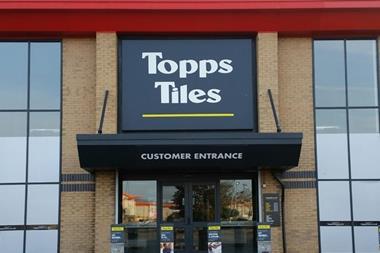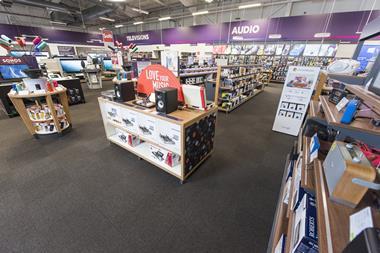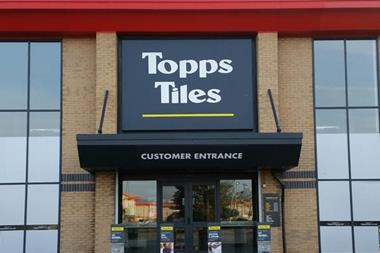Dixons Carphone, Quiz and Topps Tiles have all removed their guidance on profits following the government mandate that they shut all their stores to stem the spread of coronavirus.
Dixons Carphone said, prior to government-mandated store closures earlier this week, its UK and Ireland sales had reported a strong uplift, with electricals sales up 8% in like-for-like terms in the period from January 5 to March 21.
The retailer’s online growth was up 23% during that period and up 72% in the three weeks to March 21. Dixons Carphone said “online trading has been very strong in all countries over the last two weeks as people have been preparing to work from home and use essential technology to continue their lives during the coronavirus outbreak.
“Early signs are that this strong trading has continued since stores closed and will help to compensate for lost store sales.”
Despite strong online demand, the stores that have been told to shut by the government were expected to contribute sales of around £400m for the rest of the year, and as a result of these lost sales said the business will “not update current-year or medium-term guidance until the impact of Covid-19 becomes clearer”.
Quiz said that since the beginning of March it has seen “a substantial reduction to traffic to store and online” and chose to close its store on March 22 to “ensure the health and wellbeing of staff and customers”.
As a result of this, the fashion retailer said its financial results for the year to the end of March would be impacted “by factors such as determining the recoverability of debtor balances, the adequacy of inventory provisions and the requirement for further non-cash store fixture and lease provisions”.
Quiz said it was unable to provide financial guidance for its current financial year. The fashion retailer’s £2m overdraft facility and £2m working capital are scheduled to expire on April 23 and the business was seeking their renewal as there are “no financial covenants applicable” to these funds.
Topps Tiles said its like-for-like sales in the 12 weeks to March 21 were down 3.1%.
The company said it has a robust balance sheet and has stress-tested a worst-case scenario of 12 weeks to store closures followed by a further quarter of materially reduced sales, and believes “its cash reserves will provide it with good levels of liquidity for the remainder of the current financial year”.
However, the business said it “is withdrawing its financial guidance for the 2020 financial year and does not expect to pay an interim dividend this financial year” due to coronavirus-induced uncertainty.


























No comments yet